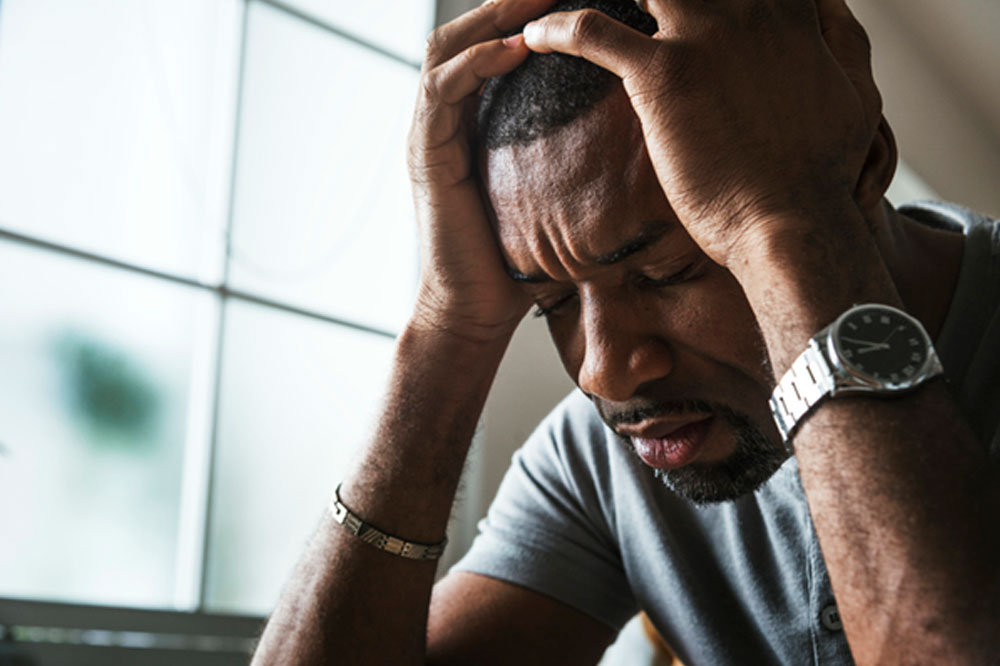A good way to think of overwhelm is like a backpack you have on while walking. Every now and then items get added to your backpack. Perhaps you’re adding them yourself, or maybe other people are stopping you for a chat and adding items while they do so. After a while, you notice the backpack is getting heavier and soon, putting one foot in front of the other feels impossible. You need to put the backpack down and rest, but you have to keep walking. The weight is crushing, and you feel paralysed with no idea what to do.
All of us can relate to this feeling. Various things can trigger this feeling, but often it’s when lots of things build up that make us feel stressed. When we’re stressed, our logical ‘thinking’ brain shuts down and our primal ‘animal’ brain takes over, putting us into fight, flight or freeze mode. Because of this shift, it can be hard to make decisions and think about a plan to tackle overwhelm. Therefore, where possible, it can help to put plans in place before we reach that point of overwhelm. One place to start with this is noticing what triggers overwhelm for you.
Noticing what leads to overwhelm
Think back to the times you’ve felt overwhelmed recently – what do you think triggered it? Is there a particular area in your life where you experience this more – for example work or life admin? Or is it often a collection of little things building up from all areas of your life? Also, keep the bigger picture in mind when thinking about overwhelm. What’s going on in the world and your family/friendship group that could be contributing to these feelings? For example, we’re just coming out of a global pandemic, there is war in Ukraine, and interest rates and fuel prices are sky high. Even if you’re not actively worrying about these things, they are underlying threats that our mind is aware of, and grief over loss of loved ones or relationships have the same effect.
Try to recognise the way overwhelm feels so you can spot it sooner
Perhaps it affects your sleep or you find you have more headaches? It might affect your thinking, leading to fast non-stop thoughts or catastrophising? Try to build up your self-awareness using tools like meditation, mood tracking (note how you feel each day or use an app like daylio) or journaling to help you spot when overwhelm is increasing.
Tackling overwhelm
Prioritise
This is a great place to start. You might find it helpful to write a list of all the things you need to do (or the items in your backpack!) and decide what is essential and what’s not.
Break tasks down into manageable chunks
This is about making those items fit a bit better in your backpack. Sometimes we feel overwhelmed by the size of a project and don’t know where to start. By chunking it down into manageable actions we can focus on one step at a time and feel more present, calmer and more capable.
Maintain your boundaries
Our boundaries are often the first things to slip when we feel overwhelmed. We start to work longer hours to try and get everything done or perhaps we’re saying yes to people when we should say no and this is leading to overwhelm.
Communicate with others
When we’re walking our path with a heavy backpack, it’s easy to feel isolated. If you look up and around though, chances are you’ll notice others on the path, heading in your direction. Tell other people how you’re feeling, share tips and communicate your boundaries with others. This alone can help make your backpack feel lighter.
Delegate and ask for help
It’s very easy to think ‘this will be easier/quicker if I just do it’, but every time we do this, we’re adding another item to our backpack. Instead, pause, look around and see if someone else can carry this item for you or help you carry it. This may be your team-mates at work or family and friends at home. Asking for help feels sticky for some of us, but when we do it, the weight that gets lifted from our shoulders is incredible.
Make space for rest
I know you think you have to keep walking with your backpack, but I promise you can put it down and rest. If you do this, you’ll feel stronger, more resilient, and able to walk further when you get back to walking, you might even feel strong enough to help others with their backpacks. Self-care is vital, especially when you feel like you don’t have time for it.




